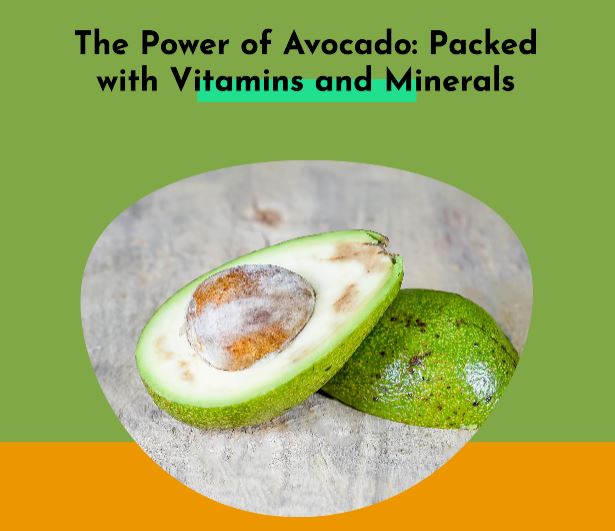In recent years, the avocado has emerged from relative obscurity to claim a position of culinary prominence. From guacamole to toast toppings and even as an ingredient in smoothies, avocado Vitamins and Minerals have taken the food world by storm. But beyond their creamy texture and distinct flavor, avocados are a treasure trove of vitamins and minerals that offer immense health benefits. In this article, we’ll explore the wealth of nutrients packed into this green fruit and why it truly deserves its super food status.
A Brief Overview of the Avocado
Native to south-central Mexico, avocados belong to the Laura Ere family. While they are often treated as vegetables in culinary contexts, they are technically berries. There are several varieties of avocados, with the Hass variety being the most popular.
The Vitamin Profile
- Vitamin K: A single serving of avocado provides almost 26% of the daily recommended intake of vitamin K. This nutritional plays a pivotal role in blood clotting and bone health by aiding in the metabolism of calcium.
- Vitamin E: Avocados are a rich source of vitamin E, an antioxidant that protects the body from the damaging effects of free radicals. Regular intake can boost skin health, improve vision, and reduce the risk of various chronic diseases.
- Vitamin C: While oranges and lemons often steal the limelight for vitamin C content, avocados also offer a decent amount of this immunity-boosting vitamin. Regular consumption can enhance the body’s ability to heal wounds and maintain healthy skin and bones.
- B-Vitamins: Avocados are rich in several B vitamins, including B5 (pantothenic acid), B6 (pyridoxine), and folate. These vitamins are crucial for energy metabolism, brain function, and the synthesis of hormones and neurotransmitters.
Mineral Wealth
- Potassium: Surprisingly, avocados contain more potassium than bananas. Potassium aids in managing fluid equilibrium, muscle movements, and neural transmissions. A diet high in potassium can reduce blood pressure and the risk of strokes.
- Magnesium: An essential mineral, magnesium plays a role in more than 300 biochemical reactions in the body. It supports muscle and nerve function, energy production, and helps in the synthesis of DNA and RNA.
- Copper: Avocados provide a good amount of copper, a trace mineral essential for the production of collagen, maintaining healthy connective tissue, and aiding in the absorption of iron.
- Zinc: Though present in small amounts, zinc in avocados plays a critical role in immunity, wound healing, and the breakdown of carbohydrates.
Fiber and Healthy Fats
While not a vitamin or mineral, it’s worth noting the high fiber content in avocados. A single serving provides around 27% of the recommended daily intake. Fiber promotes digestion, reduces the risk of chronic diseases, and aids in weight management.
Additionally, avocados are renowned for their monounsaturated fats, particularly oleic acid. This heart-healthy fat has been linked to reduced inflammation and a decreased risk of heart disease.
Conclusion
Avocado Vitamins and Minerals are not just a food trend; they’re a nutritional powerhouse. Packed with a plethora of vitamins and minerals, they not only contribute to a balanced diet but also offer health benefits that can mitigate the risk of many chronic diseases.
The next time you slice open a ripe avocado and savor its buttery flesh, take a moment to appreciate the myriad of nutrients you’re ingesting. In the realm of healthful foods, the avocado is undoubtedly a crown jewel.
